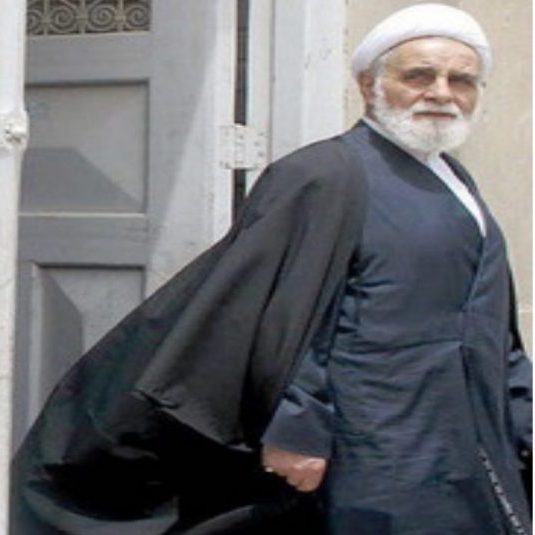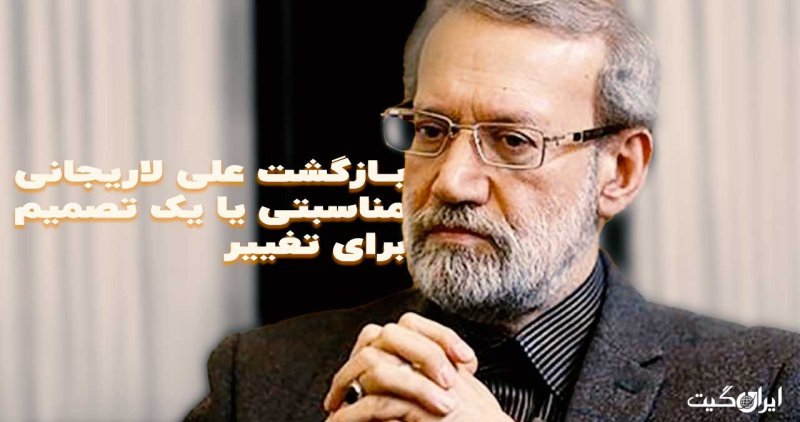Ali Larijani’s Return: A Special Occasion or a Decision for Change
Ali Larijani’s Return: A Special Occasion or a Decision for Change. According to Iran Gate, Ali Larijani, a member of the Expediency Discernment Council, who had remained silent for a long and noteworthy period after completing his three terms as Speaker of the Islamic Consultative Assembly, has recently given interviews on national television due to protests and the anniversary of General Soleimani’s assassination. Speculations about him and the possibility of his return to the forefront of politics have arisen.
Of course, this philosopher-like politician always analyzes events in his unique manner, and perhaps this philosophical language and perspective are somewhat less appealing to the general public.
In his recent and timely interview, he also provided an interesting critique and interpretation of the true measure of a politician. He does not consider explaining the situation as a politician’s duty or the reason for their election by the people. Instead, he believes that a politician should enter the political arena to change the situation, not just to explain it. Within this explanation and interpretation, a very serious critique of the government, particularly the President, is clearly visible.
This is because these days, Raisi acts as a critic of the current situation in most of his speeches, as if he is part of the opposition to his own government, ignoring the fact that leading a government is very different from judicial positions and that no problem, especially in the economy, can be solved by orders and decrees.
Larijani’s Moderate Approach
As mentioned, Ali Larijani’s critique style also has a philosophical complexity, and in recent years, as he has distanced himself from the top tier of power, he has tried to criticize less and focus on his assigned tasks without controversy. The opinions of some of his former and close colleagues in the parliament also support this claim.
For instance, Ezzat Yousufian Molla, a former parliament member, says about him, ‘Mr. Larijani does not want to become a critic or express critical opinions. He accepted all tasks assigned to him without shirking any responsibility. In other words, he accepted all orders issued for him wholeheartedly and is currently busy with work.’
Ali Larijani’s political behavior is similar to that of Ali Akbar Nategh Nouri. There is still no framework for him to step into the field. What can he do? If Mr. Larijani did not accept his current responsibilities, it would be a different discussion, but so far, he has accepted every responsibility assigned to him. Mr. Larijani is very active. In addition to fulfilling his responsibilities as an advisor to the Supreme Leader, he participates wholeheartedly in all sessions of the Expediency Discernment Council and the Supreme Council of the Cultural Revolution and performs his duties.

Nowadays, any meeting is interpreted as the beginning of criticism and critique. Mr. Larijani has no desire to criticize or become part of the critics, especially since there is still a long time until the parliamentary elections, so there is currently no discussion on this topic.
The Society’s Approach to Moderate Forces
If we realistically seek to explain and describe the current conditions, we must accept that the current atmosphere is very extreme and radical on both sides—the protesters and the government. The government, with minimal flexibility and without making reasonable decisions that might reduce tension levels and perhaps rebuild the lost trust of some social layers, continues to beat the drum of power and harsh measures.
The protesters, in reaction to this government’s approach, not only do not back down from their previous demands but now are not satisfied with anything less than a change in government. In these circumstances, it’s natural that moderate groups, whose words and actions are ignored, are marginalized.
These days, we witness that whether in activism or in serious spaces of social networks like Twitter, and whether in the realm of ministers and political elites, anyone who speaks of a middle and reformist path is immediately faced with multiple labels and accusations, and the great anger of the protesters descends upon them, with the least they receive being the new political title of ‘whitewasher.’
Therefore, in such conditions, accepting that the protesting society, at both the street level and the silent level, pays the least attention to moderate forces is a reality, and this might show its consequences in the future in a post-revolution and protest atmosphere.
What the revolutionary generation regrets with a sigh about the lack of attention to figures like Shapour Bakhtiar is, of course, not intended to compare any contemporary political figures in this text, and we well know they are essentially incomparable. Rather, the discussion is about the role and chance of moderate forces in every historical period and socio-political crises.
The End of the Era of Moderation
In today’s atmosphere, if everything is lost in the dust of doubt and it becomes less possible to speak with certainty, one thing appears almost inevitable and certain: the end of the work of moderate political figures, both at the level of politicians and as activists. As we witnessed, a person who suffered from imprisonment, political confinement, and many restrictions due to journalistic activism, like Ahmad Zeidabadi, was not spared from harsh attacks and said goodbye to analyzing political events forever. The harsh reactions of a tired, impatient, and certainly oppressed society only listen to words that soothe their hearts until a solution is provided.
Today, the legitimacy crisis of the government, which has led to the loss of social capital, has not only put the rulers in a bind and danger but also pushed moderate forces, who could always be a suitable option for changes, into oblivion. This is the result of the governance model of the political system ruling the country, and the full responsibility for this critical situation lies with the system.

